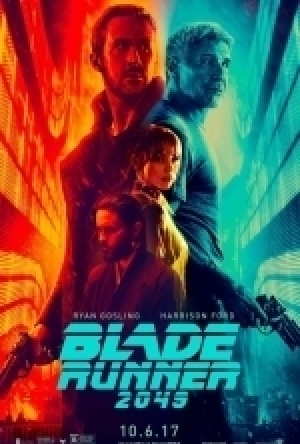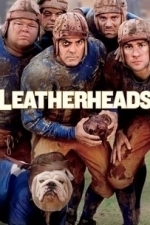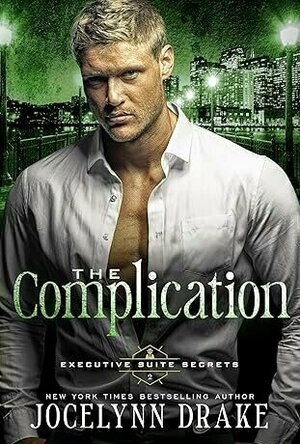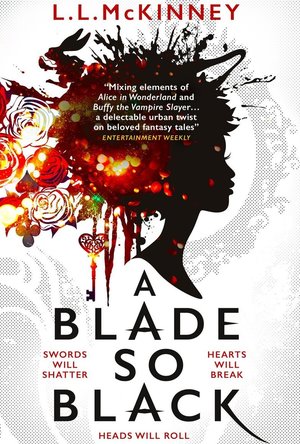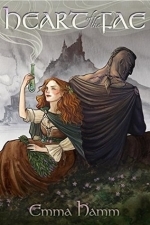
Toca Nature
Education and Entertainment
App
*App Store Best of 2014* Nature is magic. Toca Nature delivers that magic to your fingertips. ...
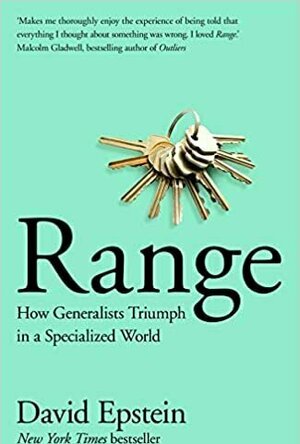
Range
Book
From the ‘10,000 hours rule’ to the power of Tiger parenting, we have been taught that success...
Daniel Boyd (1066 KP) rated Blade Runner 2049 (2017) in Movies
Oct 9, 2017 (Updated Oct 13, 2017)
Somehow, Denis Villeneuve has achieved the impossible. He has directed a movie every year for the last five years and they have all been absolutely incredible, also he has managed to pull off a fantastic sequel to a 35 year old classic.
I loved almost every part of this movie. The direction was masterful to watch, with the movie being moved along at a deliberate, purposeful pace, rather than rushing through from action scene to action scene. The sets in this were out of this world, some props were really cool to look at and the use of mostly practical backdrops made a huge difference as opposed to using an abundance of green screen. Rodger Deakins' cinematography was astonishing, you could honestly screen grab an image from any time stamp in this movie and it would work perfectly as a beautiful desktop background.
I also thought that the performances were fantastic and everyone did a great job. Although Ford doesn't appear until the movie's third act, when he does he is great. Gosling commands his leading man role as we've come to expect him to. Robin Wright and Dave Bautista were the other standouts for me in terms of their performances.
The more technical elements of the movie worked perfectly in tandem with the story being told as well. The special effects were beautifully implemented and the lighting in the movie added a whole other layer of visual depth as well. The score also worked for the tone that the movie was aiming to achieve. The script was also solid and tightly woven.
The only thing I will say is; if you are going into the film expecting a sci-fi action blockbuster, you will come out disappointed. This is a slow paced, sci-fi noir, detective story. There are a few sparse moments of action and it does feel impactful when it occurs, but it is not the focus of the movie at all.
The one small element that bothered me was Jared Leto's performance. He took me out of the movie and was the only cast member who didn't feel like a real character within this world. Maybe I'm just being biased, as Jared Leto has always annoyed me in general, but for me he was the one bad part of this near masterpiece. Thankfully he doesn't get that much screen time, so it could have been worse. Also, the fact that David Bowie was originally cast in that role adds an extra sprinkle of salt in the wound.
Unfortunately, much like the original movie, this hasn't done great at the box office on its opening weekend. If like me, you are sick of mindless sequel cash cows that are total garbage such as Jurassic World, go and see this movie and vote with your wallet. If you don't, we are telling Hollywood that as a collective, we don't want sequels with depth and integrity, we want dumb, rushed, forgettable nonsense and that is what we will end up getting. Support this movie for the betterment of filmmaking and cinema, even if you haven't seen the original.
Overall I loved the movie, but I can see why people are finding it divisive. For me though, the vast majority of this movie's parts were absolutely fantastic and come together to form a journey that you must experience for yourself.

AAA+ Foundr - Entrepreneur Magazine for a Startup
Business and Magazines & Newspapers
App
FREE Download & FREE Trial! Foundr Magazine is leading a movement that reveals exactly what it...
Gareth von Kallenbach (980 KP) rated Leatherheads (2008) in Movies
Aug 14, 2019
Cut to George Clooney’s character, the aging “Dodge Connelly”, playing pro-football in mire-like conditions; his audience a tangle of bored fans and uninspired locals. It is a far cry from the opulent circumstance of college-level football. Men, bedraggled and sweating under the promise of returning to work at the mines and fields if their football dreams go under, play with reckless abandon and forgotten morals in hopes of winning that next game. Yet, as fate will go, the Bulldogs lose their sponsorship and the team goes under, forcing men to return to their day-jobs and leaving Dodge without a future. The man has no marketable skills, no trade. He is a football player and is determined to see his team back in the game.
Of course, that isn’t the only bit of chaos. There has to be a girl; there is always a girl involved in stories like these. Enter Renée Zellweger’s character, the vivacious and equally tenacious “Lexie Littleton” – a news reporter for the Tribune. Lexie is on a mission to expose Carter Rutherford and get to the bottom of his infamous war story. It comes to no surprise that when Lexie and Dodge meet in a hotel lobby awaiting the arrival of Carter Rutherford and his manager, “CC Frazier” (played by Jonathan Pryce), that sparks immediately fly between them. Dodge has a proposal for CC and Carter: have Carter take a leave of absence from Princeton to play pro-football for the Bulldogs, thus saving pro-football and paying Carter for his efforts. Naturally, CC wants a cut from the profits and finds a way to do so to accommodate his own needs. Dodge, without any other alternative, agrees.
Meanwhile, Lexie is working her magic on Carter to try and weasel the true story out of him as best she can. Try as she might she cannot ignore Dodge, no matter how acid her tongue wags in his direction. In the end, Lexie gets her story yet realizes she must decide between exposing the truth or letting America bask in the glory of its self-proclaimed war-hero.
In review, there is a true chemistry between all of the main characters and both Zellweger and Clooney do a good job of conveying the vehement (and callous) emotion between Lexie and Dodge. However, no matter how funny the banter becomes between these three main characters or how well the scene plugs along, in the end the movie comes off as a passable but by no means memorable. Betimes it seems to stretch on and on and more then once I found myself looking at my clock. In truth, the movie didn’t need to be nearly two hours long. It felt two hours long which is never a good thing, especially when we’re talking about theatre seats.
That said, I thought the movie was a cute and enjoyable comedy. It won’t crack your funny bone but it will certainly tickle it more then once. All in all I give it 3.5 out of 5. It succeeded in making me laugh and did keep me entertained. Above all, I’m sure many will find it enjoyable to some extent.

Aviation Empire
Games and Travel
App
Rule the skies with this 3D strategic airline game! Your mission: choose destinations, invest in...
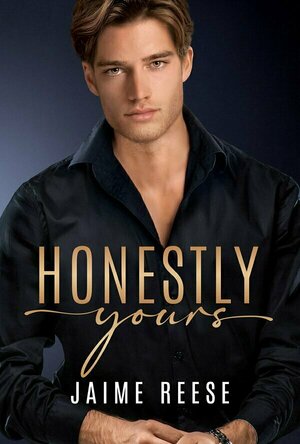
Honestly Yours by Jaime Reese
Book
The truth hurts. But in the end, honesty wins. Or does it? Warren Prescott loves a challenge. He...
Contemporary MM Romance
Merissa (13690 KP) rated The Complication (Executive Suite Secrets #2) in Books
May 26, 2025
This time we meet Declan and Parker, an opposites attract, grumpy/sunshine pairing that is just a way for them to get their rocks off initially. They have been meeting most weekends for a year now, but Parker's life changes in BIG ways all at the same time, which understandably leaves him floundering. While his family are there for him, the one who steps up the most is Declan.
I loved their story! How protective Declan was over Parker, and how it was reciprocated, too. There are moments of realism (Joy's diaper!) and moments of sheer romanticism that made my heart flutter. Parker's mum made me a little grumpy, even though her heart was in the right place, but it all worked out in the end.
A fantastic story with amazing supporting characters and a world I can't wait to return to. Absolutely brilliant and HIGHLY RECOMMENDED by me.
** Same worded review will appear elsewhere. **
* A copy of this book was provided to me with no requirements for a review. I voluntarily read this book; the comments here are my honest opinion. *
Merissa
Archaeolibrarian - I Dig Good Books!
May 26, 2025
Goddess in the Stacks (553 KP) rated A Blade So Black in Books
Mar 21, 2019
In the main plot, Alice is a Dreamwalker, wielding Figment Blades and her own Muchness to kill the Nightmares that try to cross from Wonderland to our world. Her mentor is Addison Hatta, an exile from Wonderland who's been charged to guard his Gateway and train new Dreamwalkers. Along the way we meet two more Dreamwalkers, more exiled Wonderlanders, and learn a bit about the war in Wonderland and why they're exiled but still charged with such an important mission as guiding the Gateways between our world and theirs.
About the only thing I didn't like about this book was how it left so many questions unanswered at the end. We got a cliffhanger to lead us into the sequel, A Dream So Dark, but it isn't due out until September! I'm also wondering where the Cheshire Cat is - he's too instrumental a character to leave out, I would think - but I have a few possible ideas about where the author is going with that, so I'm anxious for the sequel, to see if I'm right.
A Blade So Black is a very unique take on Wonderland by a POC author, starring a POC heroine. There's also an adorable lesbian couple as side characters. With minority racial representation, a fairy tale base, and a splash of LGBT+ rep, this book checked a lot of the boxes I look for in my fantasy. It wasn't the best YA fantasy that I've read in the last year, but it was definitely fun!
You can read all my reviews at http://goddessinthestacks.com
Merissa (13690 KP) rated Heart of the Fae (The Otherworld #1) in Books
Dec 8, 2017
This is an excellent story that grips you from the start. The descriptions of the blood beetle are enough to curl your toes, and therefore it becomes just as important to the reader that Sorcha finds a cure. The author has certainly done her research with regards to Irish mythology, and it certainly shows in this story. Yes, it is a retelling of Beauty and the Beast, but to be honest, that was second to the mythology that I was reading. Descriptive and smoothly paced, this story is full of Fae (both Seelie and UnSeelie), old legends and new stories. There is never a dull moment in this story, and the scenes flowed from one to the next. The characters are all fully developed, and I can't wait to read more about them. I love how they are 'complicated', there isn't a single one that is just "good" or "bad". If I had to say one bad thing about this book, it's that I was NOT ready for it to end. However, it did *sigh* and now I must wait impatiently for book 2!
A fantastic Fantasy that I highly recommend.
* A copy of this book was provided to me with no requirements for a review. I voluntarily read this book, and my comments here are my honest opinion. *
Merissa
Archaeolibrarian - I Dig Good Books!
